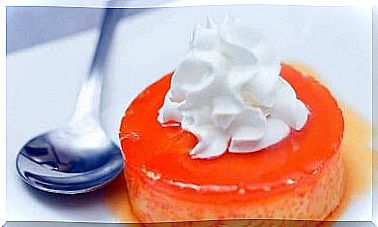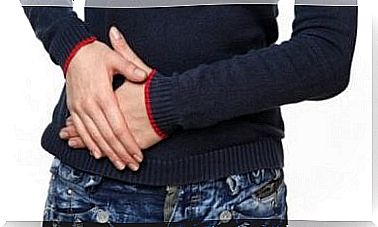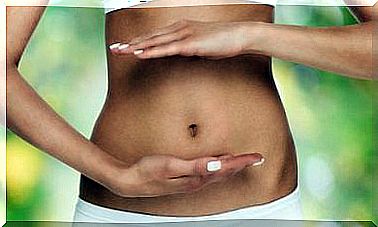Eat Little And Still Get Fat? Know The Reason
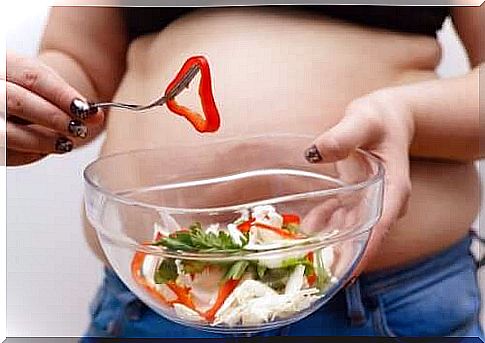
Do you eat little and still get fat? We all know people who eat a lot and are thin, just as we know people who still get fat even though they eat little. The latter tend to have difficulty losing weight and often experience feelings of failure and guilt about not losing weight.
The formula for losing weight is virtually universal. It’s based on the first law of thermodynamics and it’s pretty simple. In short, we will lose weight if we spend more than we eat. It has a proven scientific basis and many people lose pounds thanks to it.
However, reducing everything to this mathematical equation has its problems, as body weight has many genetic, environmental, dietary, psychological, etc. variables. Therefore, when you want to lose weight, it is necessary to take all these aspects into account.
The energy balance
In summary, energy balance is based on two key concepts. The first is the calories we take in through food and which are our daily fuel; the second is the calories we expend or metabolic rate. In this case, more factors come into play:
- Basal metabolism. Minimum energy needed for the organism to perform its most basic functions. It is estimated that it represents between 70 to 80% of the total daily caloric expenditure.
- Exercise and physical activity. These are the calories we expend doing daily activities or exercising more intensely.
- Thermic effect of food. It is the energy we spend on eating and digesting food.
In short, if more calories come in than go out, we get fat. On the contrary, if more calories leave than enter, we lose weight. Thus, based on this statement, one of the most widespread ways to lose weight is to restrict calories, ie, eat less.
So where is the error of people who get fat even if they eat little? What could they be doing wrong? To resolve these issues, read on.
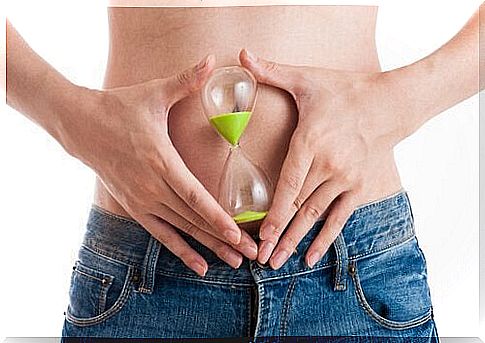
Why are you still getting fat even though you eat little?
The role of metabolism
Our organism is a lover of balance. In all senses. In short, it has its mechanisms to balance body pH, temperature, blood pressure and, of course, body weight.
In this way, when it detects an important caloric restriction and the consequent weight loss, it puts itself in a state of alert. The body’s priority is not to lose weight, even if that is what we want. Automatically, a series of hormonal reactions designed to save energy are activated.
One of the first things you still get fat on is that your basal metabolism and feeling of fullness are reduced. In turn, hormones associated with hunger are increased.
As we have seen before, basal metabolism has a great importance in the total calories we consume throughout the day. So, even though we eat less, we also spend less and the weight ends up stagnating. In some cases, it ends up increasing.
spend more to lose weight
Eating less is a way to lose weight because we eat fewer calories. However, as we have seen, if the metabolism slows down, it is not possible to uncontrollably reduce the calories that are ingested.
In addition to being metabolically harmful, very restrictive diets lead to a lack of nutrients and a lack of energy. So, it can lead to a state of apathy, decay and even a bad mood.
That’s why it’s important to spend more and not just cut down on calories. Exercise and daily activity are essential to maintain a healthy metabolism, positively modulate hormone regulation, increase muscle mass, as well as reduce fat mass.

The importance of muscle mass
Our muscles are one of the body’s systems that consume the most energy, even when we are at rest. A person with a higher percentage of muscle mass will have a higher basal metabolism than a person with a lower percentage of muscle.
Our muscle mass is often affected by the time we start dieting. When the body is depleted of glucose provided by food, it looks to other sources to obtain it.
In this sense, one of the main reserves we have is body fat and muscle mass. And it is precisely the latter that we use primarily when there is caloric restriction. The result is a loss of muscle mass that further reduces energy expenditure.
At this point, it would be necessary to reduce more and more the amount of food eaten, with the negative consequences that we have seen that this brings. As a result, some people still gain weight, even if they eat little, because their expenditure has become so low that it is difficult to eat less than that amount.
Paradoxically, sometimes eating less or eating little is not synonymous with weight loss. So, the most correct thing is to put yourself in the hands of a professional and adopt healthy lifestyle habits that allow you to lose weight in a regular and lasting way.

